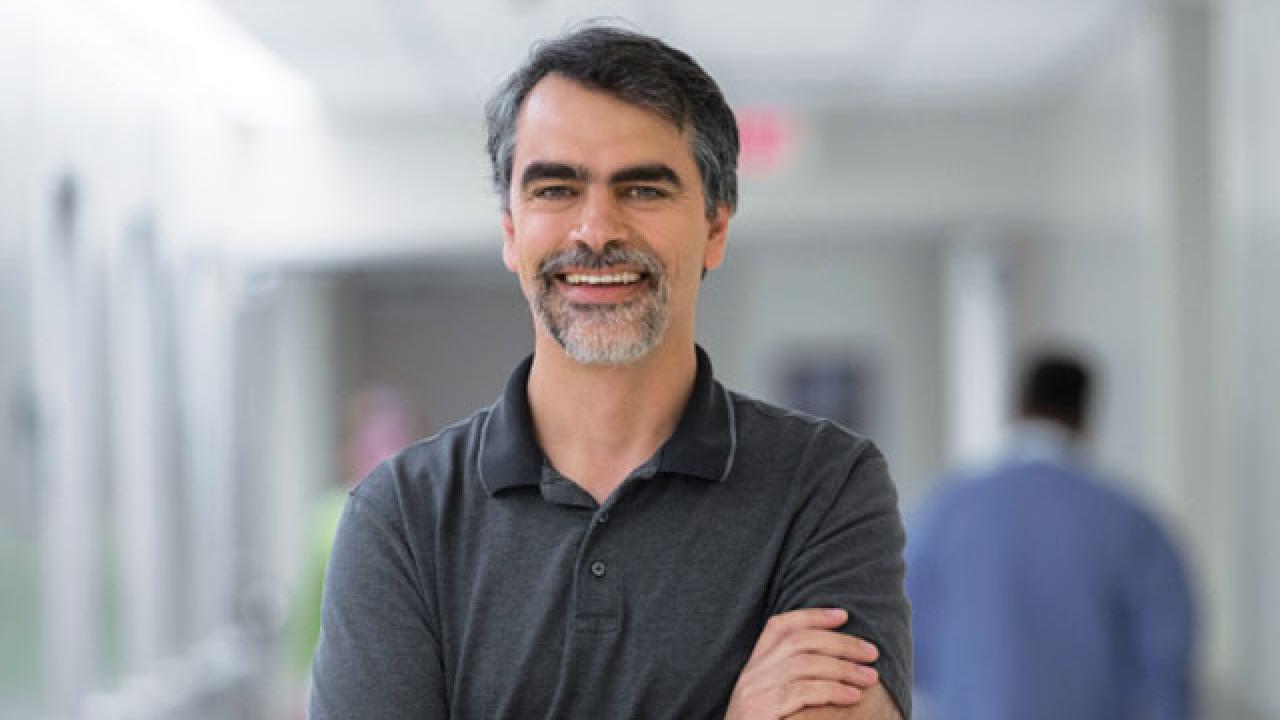
Ramsey D Badawi
How do you define faculty leadership?
For me, faculty leadership is about being passionate about what I do, and encouraging others to be passionate about what they do. It’s about being compassionate to self and others while holding self and others accountable. It’s about providing opportunities and encouragement to help others grow. It’s often about having faith in a project, and not allowing the disappointment of today’s failure from obscuring the bigger picture of tomorrow’s success.
Of course, I don’t always match up to my own hopes and expectations as a leader, but if others can see me striving to correct myself when I make mistakes – they can often find the courage to make and recover from mistakes themselves. And that offers an efficient route to growth.
Can you share an example of when you've been able to influence positive change as an academic leader?
I would choose as an example my current major research project, which involves building a PET scanner that is 8 times larger and 40 times more sensitive than current commercial devices. My colleague Simon Cherry and I first proposed this in 2005, and it took us ten years – and many, many failed attempts – to get it funded. I have lost count of the number of times we were told the project was “impossible,” “unfundable” and/or “impractical.”
Through all these years I found that my passion for the project could infect others and now we are funded, we have a team at UC Davis – from the Dean’s office through to my junior mentees, and including clinical and IT support staff – who are all rooting for and helping to ensure the project’s success. I have done what I can to empower junior people, so they can see themselves making an actual difference in this project. This then empowers them to make a difference in other things they do, and to drive their own missions forward as well.
How could the University benefit from preparing more faculty for future leadership positions?
I see it as part of the University’s mission to train and then disseminate the next generation of leaders into the community, and that includes faculty. But in addition, I believe that a great leader also makes a great team player. As a leader, my mission is to serve something larger than myself. If I have really taken on board this philosophy, then I am better placed to see the big picture and to work for the greater good. If we build a community of passionate and visionary leaders who practice and encourage compassion and integrity, we can build a better and safer world for ourselves, our society and the generations to come. In my judgement, this is not simply a “benefit,” but rather a duty. If I may borrow from John Lewis: “If not us, then who? If not now, then when?”
Tell us about your experience with leadership development programs, or if you have not participated in any, what you would hope to gain from doing so.
I have attended a number of lunchtime seminars on leadership development provided by the School of Medicine at UC Davis. These have provided me with practical skills – for example in how to chair meetings effectively – as well as insight into how people communicate and other leadership essentials. They have also provided me with a network and community of peers in leadership that I believe will serve me well.
In addition, I have participated in leadership training workshops outside of the institution, and what I have learned there is that introspection – assessing what makes me feel the way I do in a given situation – is an absolutely critical step on the long road to self-mastery that is needed for effective leadership.
What would you say to Faculty hard pressed to find time to participate in leadership workshops or other programming?
If you are serious about realizing your full potential – and about helping those around you to realize theirs – you need to learn leadership skills and then practice them over and again. These skills are people-skills and are not easily obtained simply from reading books. You can get some of them by learning from great leaders in your community, but an efficient way is by attending well-constructed leadership programs. And the great advantage of attending such programs is the opportunity to forge a network with other leadership-minded individuals in your cohort. Leadership is hard. You, and those you would lead – will not be well served if you try to do this on your own.
